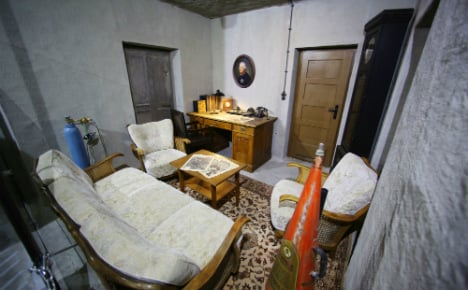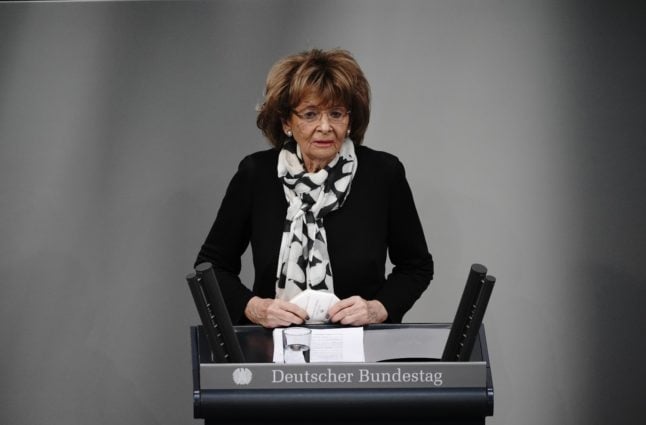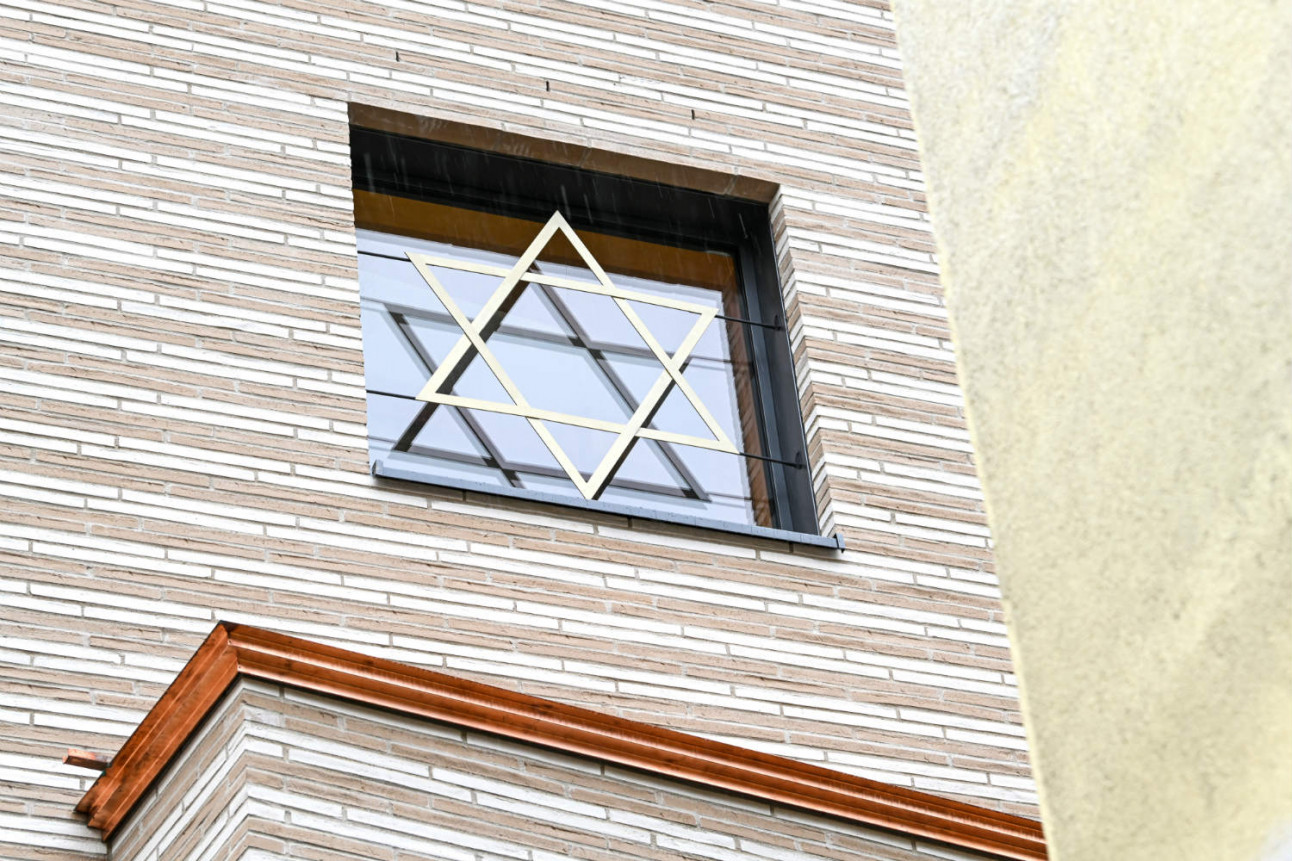In the Berlin Story Museum, you can now visit a reconstruction of Adolf Hitler’s living and work rooms from the “Führerbunker”.
A picture of Frederick the Great on the wall. A small sheepdog statue on the desk. The grandfather clock in one corner, the oxygen canister in the other. That’s how it is thought Hitler’s rooms looked in the underground bunker.
The private museum’s curators have recreated the rooms in which Hitler committed suicide on April 30th 1945. It’s been installed in a preserved Second World War bunker, just two kilometres from the location of Hitler’s former bunker.
But is it just sensationalism or an approachable way to convey history?
“We don’t want to make a Hitler show,” said Wieland Giebel from the Historiale organisation, which runs the Berlin Story Museum in the former air-raid bunker at the Anhalter Bahnhof. Visitors can only see the Hitler rooms as part of a guided tour.
“The tour begins in the bunker, which was designed for 3,500 people, and by the end of the war provided refuge for 12,000 citizens. On the other side, there is what happened in the “Führerbunker”. We did not want to separate one from the other.”
The new display has come under criticism from the archive centre and museum the Topography of Terror, which was built on the site of the former headquarters of the Gestapo (Nazi secret police) and the SS.
“We explain history, document it, and stick to the facts. That is why we cannot support such productions,” said The Topography's spokesman, Kay-Uwe von Damaros. “Sensationalism isn't our thing.”
But the reconstruction of the Hitler rooms is roughly correct, according to Christoph Neubauer, who researched the history of the bunker for an animated 3D documentary of the bunker using photographs and building designs. But he said the couch suite would have looked different in reality.
The German capital is rich in authentic artifacts but also in recreations, which attract visitors from all around the world.
In the Stasi museum, the office of the East German secret police head Erich Mielke is preserved in its original condition.
But the room in what is now the German Russian Museum where the German surrender was signed in 1945 is furnished with replacements which approximate how the originals would have looked.
There was uproar when Madame Tussauds unveiled a wax model of Hitler at the central Berlin tourist attraction. The statue of the dictator was described as tasteless being so close to the Holocaust Memorial.
But the model only lasted a few minutes. Just after it was installed in 2008, a man attacked the statue, decapitating it while shouting “War never again!”. The model was restored and is now displayed behind glass.
People want to see the authentic sites, according to Adam Kerpel-Fronius, who works for the Berlin Holocaust Memorial. “I don’t see that as a bad thing,” he said.
Only an information board now stands at the actual location of the former bunker. “The fear was always that it could become a shrine for neo-Nazis, but that is not the case,” he continued.
“Everyone who comes to Berlin and is interested in history knows that the “Führerbunker” existed. They would be surprised if they could only find a car park at its location,” concluded the academic.
Monika Bauert, the set designer for the iconic German film Das Boot, designed the controversial bunker reconstruction.
“The information board does not address the topic sufficiently,” she said. “I think that it is important to re-visualise a three-dimensional model.”
The Berlin Story Museum curators emphasize that photography is not allowed during the bunker tour.




 Please whitelist us to continue reading.
Please whitelist us to continue reading.
Member comments